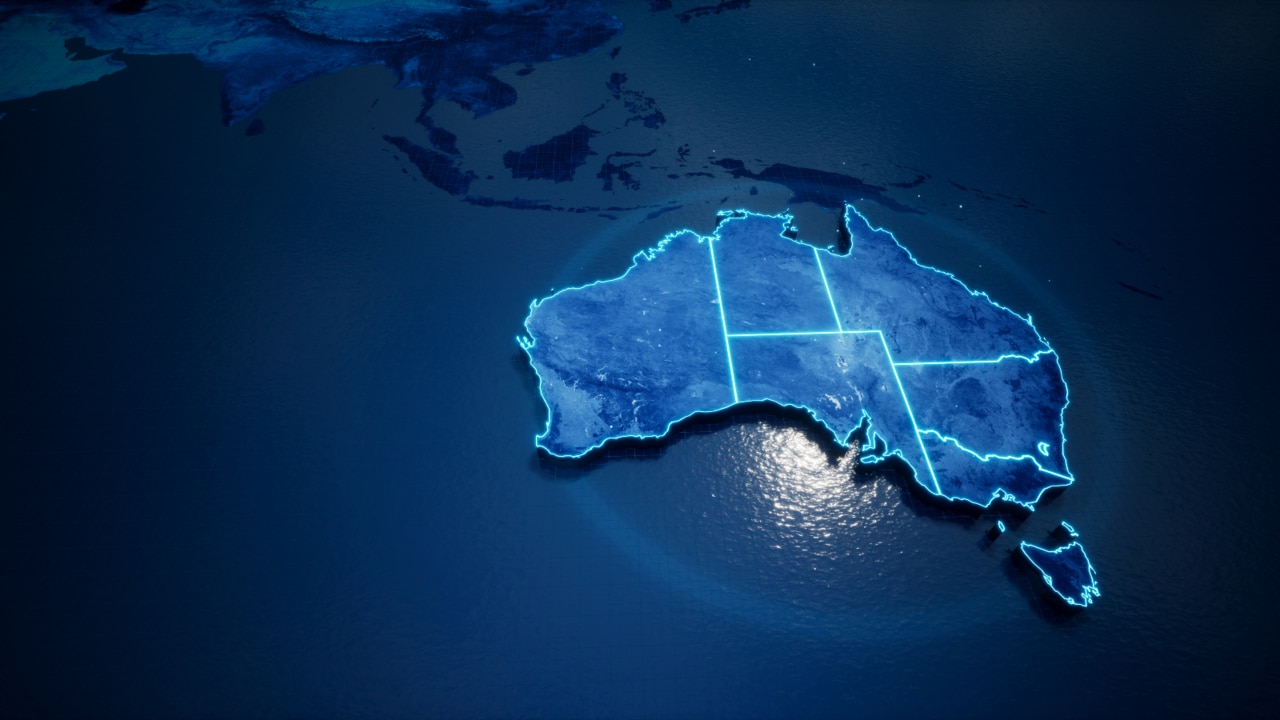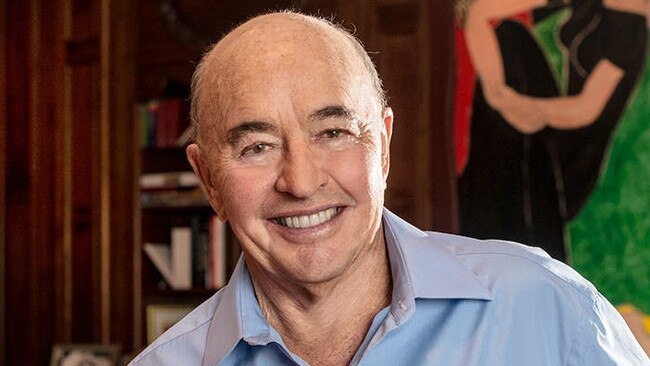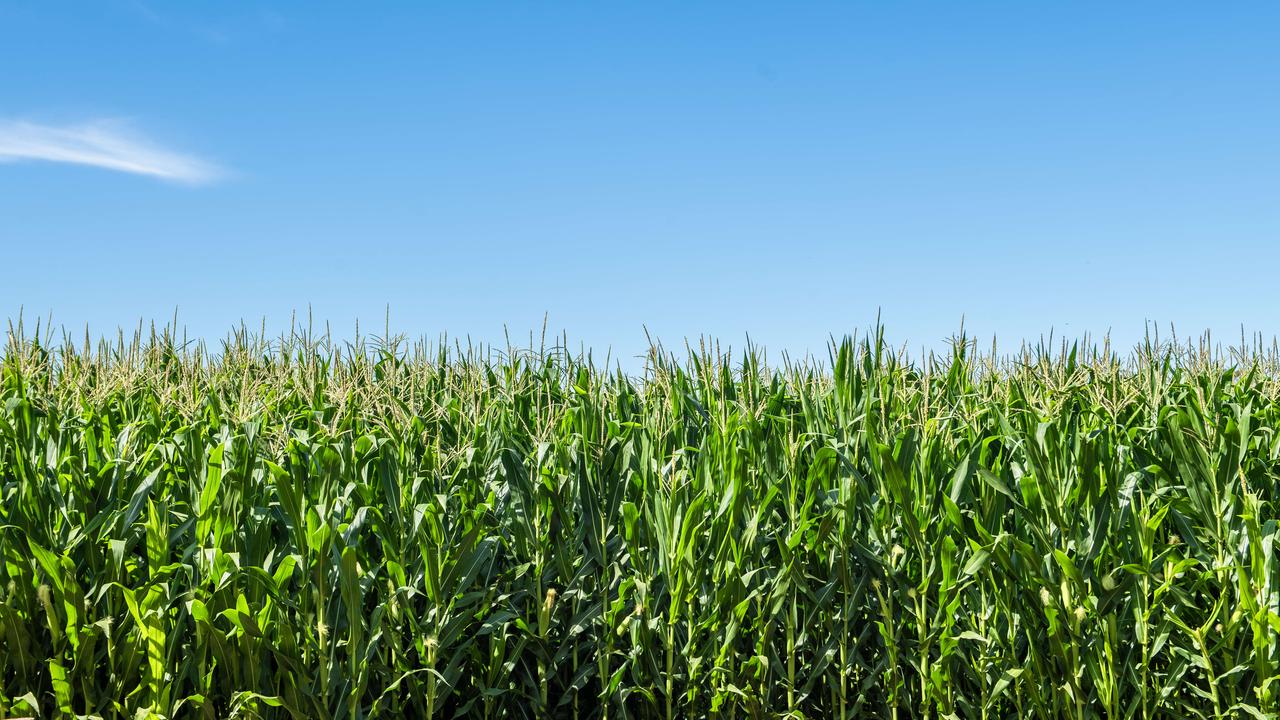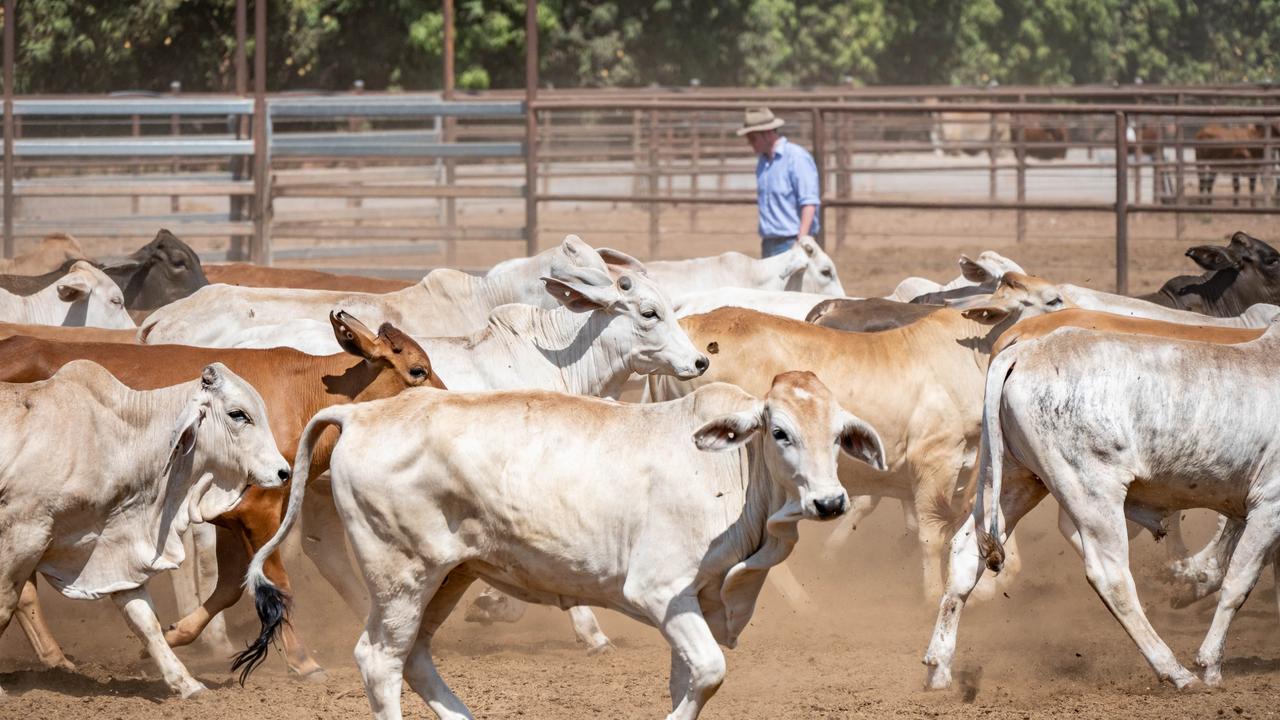AACo profit jumps as people pay more for beef and farms
The beef giant, which is at the centre of a billionaire battle between Joe Lewis and Andrew Forrest, has shrugged off cost of living pressures to post ‘one of its strongest results’ in memory.

Australian Agricultural Company is reaping the rewards of a boom in land values as billionaires battle for bigger pieces of the nation’s farmlands, and strong prices for beef to report a 35 per cent jump in annual operating profit to $67.4m.
However, the company’s statutory net profit fell to $4.6m – a massive 97 per cent drop – due to the required mark-to-market fair value of its cattle herd during this time, something AACo believes does not accurately reflect the longer growth period of Wagyu cattle.
AACo chief executive David Harris described the earnings as “one of the strongest operating results we’ve seen in recent memory,” adding that solid rainfalls would support the company – which accounts for about 1 per cent of Australia’s land mass – during this current year.
“An exceptional wet season across AACo’s properties puts the company in a good position that will benefit our cattle through the supply chain,” Mr Harris told analysts after the earnings announcement. “The rain has also filled our river systems and lakes to levels that in some cases have not been seen in a decade.”
AACo shares surged nearly 10 per cent during trade on Thursday morning.
Despite the strong result, the company again said it would not pay a dividend. AACo hasn’t paid one in 15 years with Mr Harris commenting that dividends were a decision for the board.
These days it‘s more likely it’s a decision made by Bermuda-based British billionaire Joe Lewis who now owns 51 per cent of the company despite iron ore billionaire Andrew Forrest moving onto the share register last year.
It’s been billionaires and millionaires at the ready across a number the nation’s key grazing properties, with fellow iron ore billionaire also recently reshuffling her property portfolio.

Agriculture company Elders said the national median price per hectare rose to $8142/ha in 2022 from $6891/ha in 2021.
It’s the same story in the US, where the Department of Agriculture reported a 12.4 per cent increase nationwide farmland values in 2022, to $3,800 an acre, the highest on record since 1970. The global boom in farm values resulted in AACo’s land valuations rising by $294.2m in the year, contributing to a 14 per cent jump in Net Tangible Assets to $2.59 per share, despite the on-paper fall in cattle valuations.
AACo’s strategy of focusing on the higher-priced branded beef and wagyu in particular seems to have held up well in Australia and export markets despite rising cost of living pressures both domestically and in key markets such as the US with its Westholme brand.
Mr Harris said wagyu is holding up well in a high inflation market because it is a “conscientious” product rather than something just eaten on mass.
“This is not something you consume in bulk,” Mr Harris said. “It’s a special product that people eat quite purposefully and so they’ll go out to a restaurant, or BBQ and make a conscious decision to consume a product like this, so they are happy to pay because they are looking for quality and experience.”
Total wagyu meat sales rose 17 per cent during the year and in the North American market branded beef revenue surged 22 per cent even though volume only rose 3 per cent during this time.
Asia remains AACo’s biggest market by volume and revenue – which grew 13 per cent for branded beef in the year, also on a 3 per cent increase in volume. Mr Harris said the company was focused on the “premiumisation” of its Darling Downs brand in South Korea.
In Australia, the company’s “spiritual home” branded beef revenue rose 13 per cent on a 2 per cent increase in volume.
In Europe and the Middle East, revenue soared 43 per cent on a 9 per cent increase in volume and Mr Harris noted this smaller market for AACo “will continue to be a focus for us.”
Mr Harris said AACo is looking closely at the UK, which next month will drop what equates to about a 20 per cent tax on Australian beef.
From June 1, a new trade agreement kicks in with the UK, which takes beef exports from 3761 tonnes at a 12 per cent tariff plus £2.54 per kilo, to having free trade for up to 35,000 tonnes in year one, and up to 110,000 tonnes by year 10.
The UK currently imports about $2.3bn worth of beef and Australia has only a 0.8 per cent market share due to the restrictive tariffs.
The cost of shipping to the UK currently equates to about 52 cents per kilo compared to 60 cents for the US East Coast.
Some beef experts believe it will take some time to get the high-end British market, which currently favours grass-fed beef, to develop a taste for the highly marbled wagyu.
Mr Harris, believes there is a quick fix for that.
“They’ve just got to taste it,” Mr Harris told The Australian. “We have product in Europe and that’s being received really well. Once we get our market activation, we get our branding in there and our people in there then we typically find there is excellent demand for this product.”
Australia is the world’s biggest exporter of wagyu. While exact numbers for this breed aren’t known, the total Australian cattle herd is currently at its highest level in nine years, at 28.8m head, according to Meat & Livestock Australia.
Mr Harris said he was proud of the company’s efforts to control costs in the high inflationary environment – which drove up the price of key inputs such as shipping and animal feed – with total cost of production per kilo of beef down 2 per cent.
AACo managed to sell its wagyu for 17.3 per cent more than it did in the previous year, which helped contribute to a 21.5 per cent increase in operating profit margin.
“This will help offset increasing input costs brought about by global inflationary pressures. Supply chain disruptions are also being felt in higher shipping costs, while geopolitical risks continue to create volatility in the global economy,” Mr Harris said.
Mr Harris will speak next week at The Australian’s Global Food Forum in Melbourne.






To join the conversation, please log in. Don't have an account? Register
Join the conversation, you are commenting as Logout